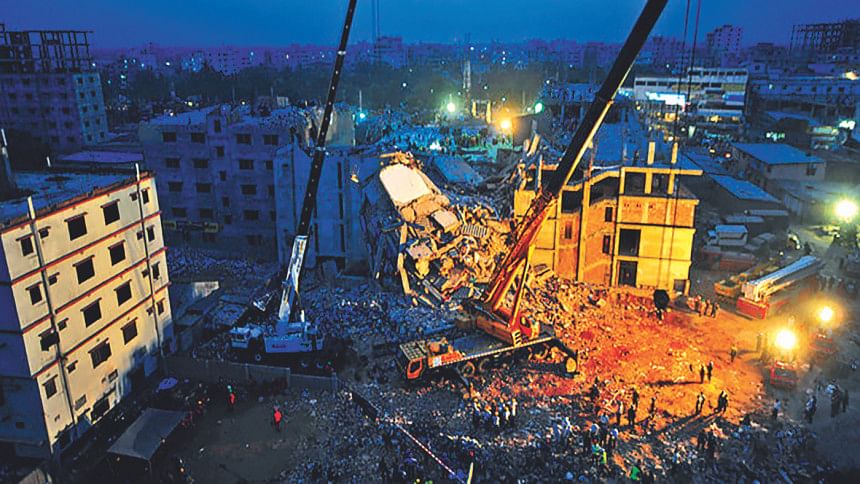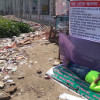Governance after Rana Plaza

The Rana Plaza disaster, on April 24, 2013, is described as the worst industrial accident anywhere in the world, galvanising stakeholders into pledging inspection and improvements in building practices and safety codes. Rana Plaza brought the country's apparel industry under intense scrutiny, inspiring national governments, the European Union, the ILO and apparel retailers to establish monitoring initiatives to improve working conditions in the RMG sector. Two monitoring regimes, establishing fire and building safety programmes, have emerged in the US and the EU: the business-dominated Alliance (US-led) and the multi-stakeholder-oriented Accord (EU-led). A third key initiative is Better Work Bangladesh, which was established in 2014 as part of an ILO project designed to support the Bangladeshi government's National Tripartite Plan of Action on Fire Safety and Structural Integrity in the country. Multi-stakeholder initiatives such as the Accord and Alliance, introduced in response to Rana Plaza, represent a major social experiment in developing new governance arrangements aimed at securing internationally acceptable factory, labour and environmental standards.
While certain steps have been taken under Accord and Alliance to ensure safety in the context of Bangladesh, recent developments point out to disjuncture between the two and other institutions. Relationship with the government has been strained, and the general view of several policymakers in the government see Accord and Alliance as interfering with state affairs. To illustrate, in June of 2015, Abul Maal Abdul Muhith, the Finance Minister of Bangladesh, in a meeting with BGMEA and BKMEA leaders, described Alliance and Accord as a "noose for the garment industry." Similarly, Tofail Ahmed, the Commerce Minister, in an International Trade Expo for Building and Safety, which took place in December 2015, said that the government would not extend the operation tenure of Accord and Alliance, scheduled to end in July 18, 2018. According to the minister, the state wants to control the industry in their own right, and wants lesser and lesser external influence.
While both Accord and Alliance try to collaborate their efforts for a safer Bangladesh in terms of the garments industry, there have been tensions between these two monitoring regimes as well, owing to the fact that one of them is a largely European effort, while the other is American. Just a few months after signing the agreement in 2013, Accord stated how "the American retailers would piggyback at no cost on the efforts of the Europeans — which includes H&M, Carrefour and more than 100 other retailers — in financing safety upgrades at hundreds of factories" (New York Times, 2013). In response to this, Alliance was surprised at the criticism and noted that there were several investments in place to help the industry. Initially, there were concerns that Alliance was not working closely with unions and a "tremendous lack of worker involvement" was noted by Scott Nova, executive direct of Worker Rights Consortium. A report by International Labour Rights Forum notes that while Alliance embraces "worker empowerment" as a central principle, the group themselves tend to overlook incidents of harassment and violence against union members. At the same time, they note how the word 'union' only appears in one section of the 18 page Alliance Member (ILRF, 2015). Finally, both Accord and Alliance only cover a very small portion of garments factories in Bangladesh. Although the number of total factories is debatable, even if there are 4,500 factories, both Accord and Alliance combined only reaches out to less than half of the existing factories.
In spite of the controversies, there is no way to deny that their presence has changed the focus of the garments industry, as there is more emphasis on workers' safety, which was previously unheard of. The end of their tenure in 2018 will allow us to view which path the industry will take in the future, and indeed it should be a sustainable one.

 For all latest news, follow The Daily Star's Google News channel.
For all latest news, follow The Daily Star's Google News channel. 







Comments